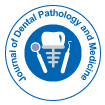Nosso grupo organiza mais de 3.000 Séries de conferências Eventos todos os anos nos EUA, Europa e outros países. Ásia com o apoio de mais 1.000 Sociedades e publica mais de 700 Acesso aberto Periódicos que contém mais de 50.000 personalidades eminentes, cientistas de renome como membros do conselho editorial.
Periódicos de acesso aberto ganhando mais leitores e citações
700 periódicos e 15 milhões de leitores Cada periódico está obtendo mais de 25.000 leitores
Indexado em
- Google Scholar
- ICMJE
Links Úteis
Diários de acesso aberto
Compartilhe esta página
Abstrato
Assessing Delay in Care Caused by Oral Antineoplastic Medications
Cinzia Salmina
The advent of oral antineoplastic medications has brought remarkable convenience to cancer treatment, allowing patients to manage their therapy at home. However, this convenience comes with the potential for delayed care, which can significantly impact treatment outcomes. This abstract provides a concise overview of the complexities surrounding the assessment of delay in care caused by oral antineoplastic medications.
Oral antineoplastic drugs represent a paradigm shift in cancer treatment, offering patients the autonomy to self-administer their medication outside the traditional clinical setting. While this approach enhances the quality of life for patients, it introduces a unique set of challenges. Delay in care can manifest through missed doses, inconsistent adherence, and a lack of adequate monitoring, potentially leading to disease progression, increased toxicity, and reduced survival rates.
The date the prescription was written and received by the patient was determined. A retrospective review was completed to gather additional information, including prescribed medication, indication, insurance coverage, patient assistance program use, dispensing pharmacy, and prior authorization requirements. The data was analyzed through multivariate statistical analysis and used to identify risk factors that may significantly increase the time to medication receipt. A total of 58 patients were included in the study. A median of 8 days elapsed between when the medication was prescribed and when it was received by the patient. Medication prescribed, absence of a Risk Evaluation Mitigation Strategies (REMS) program, and insurance type are factors that increased time to medication receipt.
Diários por Assunto
- Agro e Aquicultura
- Alimentação e Nutrição
- Bioquímica
- Ciência da Computação
- Ciência de materiais
- Ciencias ambientais
- Ciências Clínicas
- Ciências Farmacêuticas
- Ciências gerais
- Ciências Médicas
- Ciências Sociais e Políticas
- Ciências veterinarias
- Economia e Contabilidade
- Enfermagem e cuidados de saúde
- Engenharia
- Engenheiro químico
- Física
- Genética e Biologia Molecular
- Geologia e Ciências da Terra
- Gestão de negócios
- Imunologia e Microbiologia
- Informática
- Matemática
- Química
Revistas clínicas e médicas
- Anestesiologia
- Assistência médica
- Biologia molecular
- Cardiologia
- Cirurgia
- Dermatologia
- Diabetes e Endocrinologia
- Doenças infecciosas
- Enfermagem
- Fisioterapia e Reabilitação
- Gastroenterologia
- Genética
- Hematologia
- Imunologia
- Medicamento
- Medicina Reprodutiva
- Microbiologia
- Nefrologia
- Neurologia
- Odontologia
- Oftalmologia
- Oncologia
- Ortopedia
- Pediatria
- Pesquisa Clinica
- Pneumologia
- Psiquiatria
- Toxicologia

 English
English  Spanish
Spanish  Chinese
Chinese  Russian
Russian  German
German  French
French  Japanese
Japanese  Hindi
Hindi